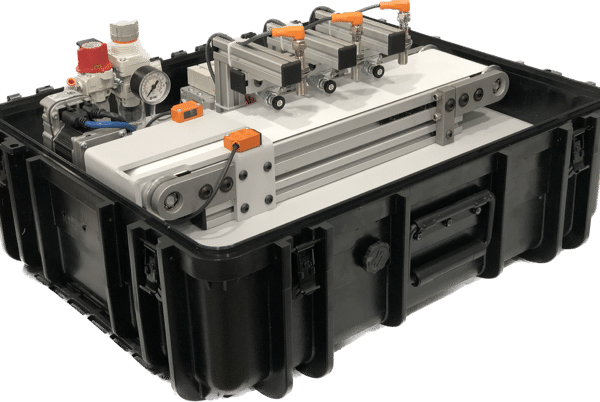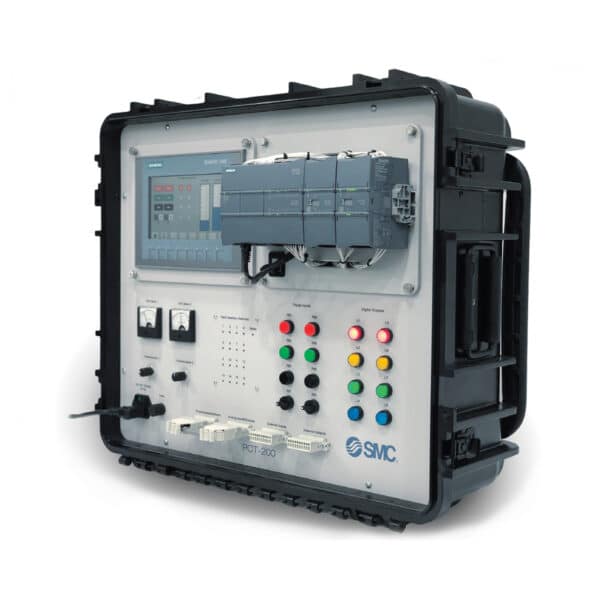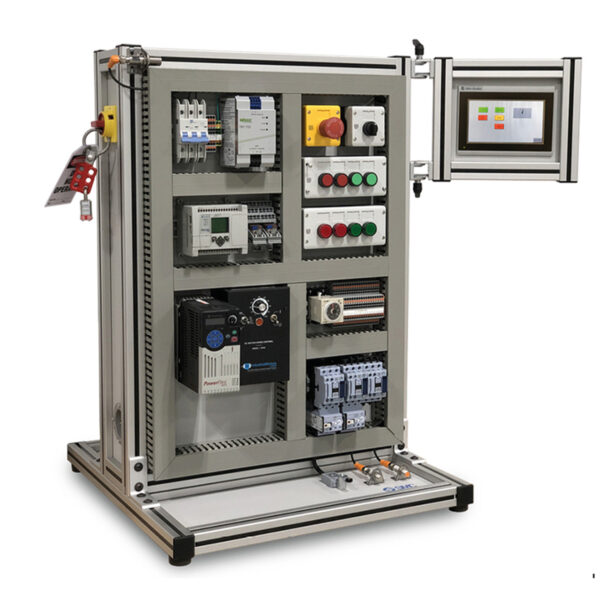Starting a program for
Electrical Engineering Technology
Ready to use
Course Framework
Technical College
General Physics I
PHY-111
This course is a study of basic concepts of physics, including motion; forces; energy; the properties of solids, liquids, and gases; and heat and thermodynamics. The mathematics used includes algebra, trigonometry, and vector analysis. A primary course goal is to build a functional knowledge that allows students to more fully understand the physical world and to apply that understanding to other areas of the natural and mathematical sciences. Conceptual, visual, graphical, and mathematical models of physical phenomena are stressed. Students build critical thinking skills by engaging in individual and group problem-solving sessions
Introduction to Computer Science and Information Technology
CST-111
This course provides a foundation for programming and problem solving using computer programming, as well as an introduction to the academic discipline of IT. Topics include variables, expressions, functions, control structures, and pervasive IT themes: IT history, organizational issues, and relationship of IT to other computing disciplines. The course prepares students for advanced concepts and techniques in programming and information technology, including object-oriented design, data structures, computer systems, and networks. The laboratory reinforces and expands learning of principles introduced in the lecture. Hands-on activities focus on writing code that implements concepts discussed in lecture and on gaining initial exposure to common operating systems, enterprise architectures, and tools commonly used by IT professionals
Applied Circuits I
EET-202
This course introduces students to the fundamentals of electric circuits. Students will learn methods for analyzing DC networks under different loading conditions. Topics include Kirchoff's voltage and current laws, node analysis, mesh analysis, impedance, series and parallel load combinations, transient analysis, operational amplifiers (op-amps), and Simulation Program with Integrated Circuit Emphasis (SPICE) modeling. Students also develop skills in PCB fabrication and soldering.
Experimental Methods
ETG-222
This course covers topics in electrical and mechanical instrumentation and data acquisition. Topics include gauges and transducers, calibration, signal noise and conditioning, computerized data acquisition (DAQ) systems, results documentation, and statistical analysis of data.
Object-Oriented Programming
CST-210
This course provides an in-depth coverage of object-oriented programming using most current application programming methods, languages, and tools. Students will design, create, run, and debug applications. The course emphasizes the development of correct, well-documented programs using object-oriented programming concepts.
Applied Circuits II
EET-302
This course builds on the topics of EET-202 and introduces more advanced circuit analysis concepts. Topics include complex impedance, AC steady-state response, resonance, passive and active filters, Bode plots, and magnetic circuits. Students practice circuit design and verification in MATLAB.
Object-Oriented Programming
CST-210
This course provides an in-depth coverage of object-oriented programming using most current application programming methods, languages, and tools. Students will design, create, run, and debug applications. The course emphasizes the development of correct, well-documented programs using object-oriented programming concepts.
Platforms and Network Technologies
ITT-116
This course exposes students to the fundamentals of networks and networking in IT. It then builds deeper understanding of how networks work, including the topics of LANs, WANs, service providers, packets, hubs, routers, switches, and Internet protocols. The laboratory reinforces and expands learning of principles introduced in the lecture. Hands-on activities focus on setting up and configuring local and enterprise networks, experimenting with various topologies, and scalability planning with routers and switches
Embedded Systems
EET-325
This course covers topics in electrical and mechanical instrumentation and data acquisition. Topics include gauges and transducers, calibration, signal noise and conditioning, computerized data acquisition (DAQ) systems, results documentation, and statistical analysis of data.
Digital Electronics and Integrated Circuits
EET-320
This course teaches students about digital electronics and semiconductor-based devices. Topics include diodes, bipolar and field-effect transistors, logic gates, combinational and sequential logic, amplifier circuits, and microcontrollers
Materials and Microscopy
ETG-315
This course teaches fundamental concepts of materials science as they apply to electric, magnetic, thermal, and optical properties. Students will study topics such as crystal structure, carrier transport, and solid-state physics. Laboratory exercises may focus on microscopy techniques and electro-plating
Power and Energy Technologies
ETG-415
This course examines methods of energy generation and delivery. Topics covered include motors and generators, power electronics, three-phase circuits, and power grid networks. Students will also contrast methods of power generation and storage as they consider their viability under different circumstances
Quality Control
ETG-420
This course will emphasize the necessary elements leading to quality production. Course topics will include Statistical Process Control (SPC) and Six-Sigma
Communication Networks & Lab
EET-330
This course covers topics in communications and networking. Students will study methods for analyzing continuous and discrete signals, sampling, noise, and data transmission protocols. Lab activities may include wireless networking, modulating radio signals, and system modeling in MATLAB
Routing and Switching
ITT-270
In this course students acquire the ability to install, configure, operate, and troubleshoot medium sized routed and switched networks. Students gain the knowledge and skills to make connections to remote sites via a WAN, and mitigate basic security threats
Industrial Automation
EET-425
This course introduces students to topics in industrial automation such as the electrical systems that power and control modern robotics, the programming logic that directs their behavior, design and implementation challenges, automated metrology, safety protocols, and environmental considerations. Systems of focus may include electrical power generation, automotive manufacturing, and circuit board manufacturing and assembly, and silicon wafer handling.
Introduction to Computer Architecture
CST-307
This course will emphasize the necessary elements leading to quality production. Course topics will include Statistical Process Control (SPC) and Six-Sigma
Controls and Instrumentation
ETG-410
This course examines the various methods of controlling electrical mechanical systems using lumped parameter models. Topics include interfacing with analog and digital sensors, motors, and actuators. Advanced control software will be used for programming the systems.
Electrical Troubleshooting and Maintenance
EET-430
This course teaches preventative maintenance and fault isolation. Students learn about common failure modes and ways to increase system reliability. Topics include safety, test equipment, troubleshooting methodology, interpreting schematics, power distribution, common control circuits, and motor maintenance.
Senior Project I
ETG-498
The first senior project course provides students the opportunity to work in teams to tackle real world applied research and design projects in their chosen area of interest. Students develop a project proposal, conduct a feasibility study, learn to protect intellectual property, develop teamwork skills, budgets, and a schedule for completing the project. Students conduct extensive research, integrate information from multiple sources, and work with a mentor through multiple cycles of feedback and revisions. Students use this course to further develop technical writing and business presentation skills. This is a writing intensive course.
Senior Project II
ETG-499
The second senior project course provides students the opportunity to implement and present the applied research project designed, planned, and started in the first senior project course. The senior project is a culmination of the learning experiences while a student in the Engineering Technology programs. Students conduct extensive research, integrate information from multiple sources, and work with a mentor through multiple cycles of feedback and revision. This is a writing intensive course. Prerequisite: Successful completion of ETG-498 with a grade of C or better.
See how toolkit can help your program
Reach out to our sales team to see how we can help your program succeed like many others. we have mobile showrooms in demos available in many parts of the country.
Sales
sales@toolkittech.com
(512) 203-0590
General
info@toolkittech.com



